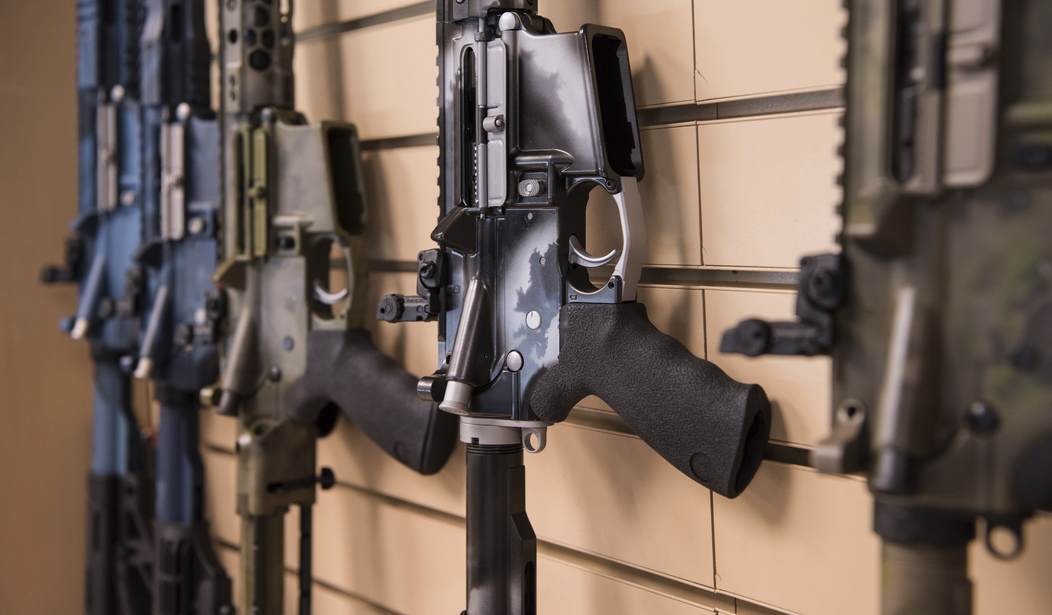The Texas Senate Special Committee to Protect All Texans, formed in the wake of the murders at Robb Elementary in Uvalde earlier this year, has released its recommended changes to state law in the hopes of preventing future attacks, but Democrats and gun control activists are already criticizing the plan for its lack of new restrictions on the right to keep and bear arms.
While the committee report does lay out a substantial number of changes to the state’s education, mental health, law enforcement and criminal justice systems, the lone recommendation regarding gun laws is a state-level law banning “straw purchases”; a criminal offense federally, but not one defined by state statute.
Texas Penal Code Section 46.06 does not make it a crime to sell or transfer a rife, shotgun or assault weapon to a person even if the seller/transferer knows that the buyer/transferee intends to use it unlawfully in a crime or is otherwise prohibited from owning that gun. Testimony from the Texas Police Chiefs’ Association indicated that the Federal Government’s lack of enforcement of the Federal law against straw hampers police in Texas from ensuring that firearms are not sold to convicted felons, dangerous criminals, and others not legally authorized to possess them. In fact, the testimony revealed that only 2% of straw purchases are actually prosecuted at the Federal level. By simply mirroring the Federal law against straw purchases in the Texas Penal Code, the Legislature could provide an important tool to law enforcement to prevent illegal gun trafficking in the State and also potentially avert some of the future mass violence events. The testimony in this hearing illuminated the multifaceted challenges faced by law enforcement in their efforts, and a state level straw purchase prohibition in law is a simple way to empower law enforcement in their work and keep guns out of the hands of those people already prohibited from having them.
However, the committee report also details the testimony of gun control activists, as well as the anti-gun policies they were hoping legislators would act on; establishing a “red flag” law, imposing “universal background checks”, and raising the age to exercise your Second Amendment rights.
This report also notes that another recommendation raised numerous times in testimony as a way to reduce mass violence events in schools was raising the age to purchase an assault-style weapon to 21. Testimony highlighted that US Secret Service reports on violence in schools have found that attackers have historically been between the ages 12 and 19 with few exceptions. However, there remains a strong lack of consensus of the Committee as to this idea
It stands to reason that most violence in schools would be committed by tweens and teens that are of school-age, but the recommendation to raise the age to purchase a firearm from 18 to 21 suffers from a few fundamental flaws. The state of Texas threw in the towel this week instead of continuing to defend a law barring adults under the age of 21 from obtaining a concealed carry license after a federal judge slapped an injunction on the law because of constitutional concerns, so a law blocking those same individuals from being able to purchase a firearm would be on incredibly thin legal ice from the moment it was enacted, and would likely never actually take effect before it too was halted by the courts.
A complete ban on gun sales to adults under-21 isn’t exactly narrowly tailored either. Mass shootings of any kind are rare events, and mass shootings at schools even more so, while the vast majority of young adults are fairly responsible, law-abiding citizens. Why then should an entire class of citizens be denied access to a constitutionally-protected right for no reason other than their age?
Well, according to one anti-gun lawmaker, because polls show the idea is popular.
Senator Royce West (D-Dallas) said he strongly supports the proposal to outlaw straw purchases in state law, but he denounced the committee’s refusal to entertain further purchase restrictions.
“We as a legislature must at least hear and consider the voice of the people with regard to firearms, even if we as a legislature go a different direction than the people’s wishes,” he wrote in a letter following the report.
Sen. West cited polling that showed 73% of Texas voters support raising the minimum legal age to buy any gun to 21.
Sen. Brian Birdwell (R-Granbury) refuted calls to raise the purchase age.
When a citizen turns 18 years old, they are defined by the United States Constitution and seen by society as an adult, reaching the age of majority,” he wrote in a letter following the report. “My concern is that once the Legislature begins changing the parameters of how and when a citizen may utilize their 2nd Amendment rights, upon what other rights can we infringe in the same way?
You know, if 73% of Texans felt so strongly about raising the age to purchase a firearm to 21, they could have voted for Robert Francis O’Rourke and his fellow Democrats last month. Since O’Rourke lost by 11 points (garnering less than 44% of the vote) and Democrats actually lost seats in the state legislature, my guess is that these specific gun control schemes aren’t really a high priority for Texas voters. It’s really school safety and security that are the underlying concerns, and thankfully the committee report does offer some decent suggestions; from expanding the state’s School Marshal program to allowing “student discipline records or any behavioral threat assessments to follow the student if they move from district to district”. In fact, there are a number of solid ideas that would both be far more effective and constitutionally-sound than the anti-rights approach advocated by the Texas Gun Sense and Giffords activists who offered their testimony to committee members, and the entire report is worth a read.









Join the conversation as a VIP Member